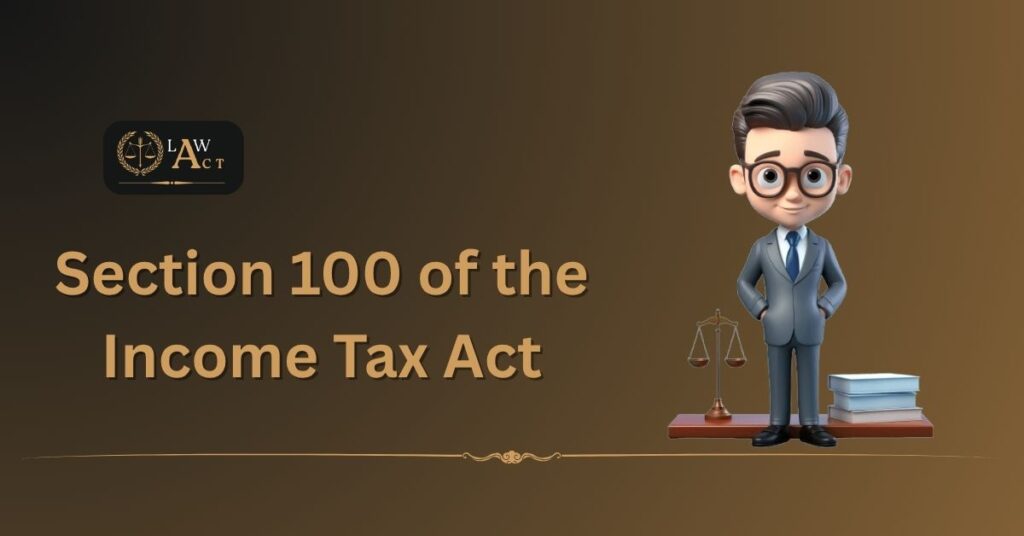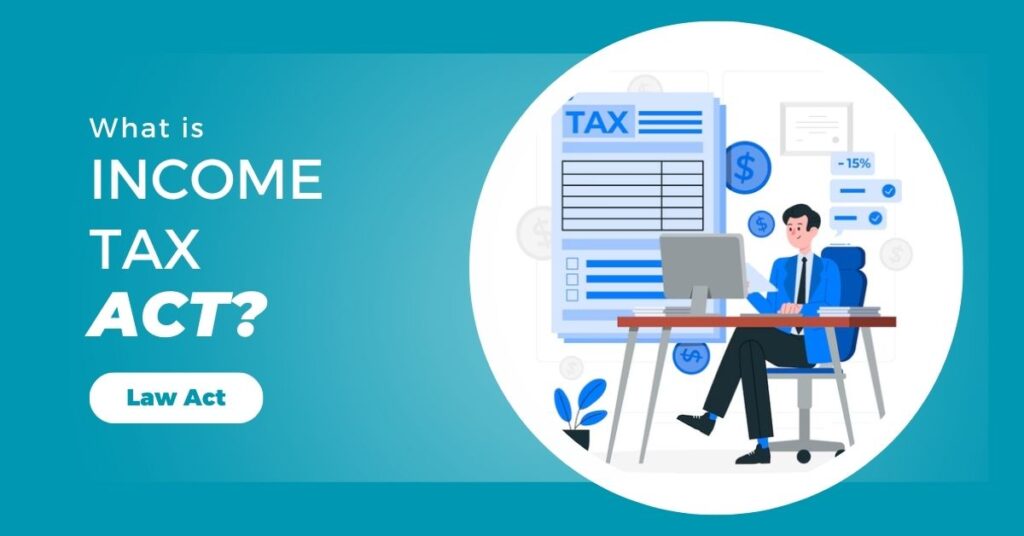Section 100 of the Income Tax Act, 1961 deals with “Appeal not to lie against assessment in respect of income in respect of which assessee is not aggrieved.” This means that a person (called an “assessee” under the law) cannot file an appeal against an income assessment made by the Income Tax Department if they are not affected or harmed by that assessment.
In other words, if the assessment made by the tax authorities does not result in any additional tax, penalty, or loss to the person, they cannot appeal against it. Appeals are only allowed when someone is aggrieved—that is, when they are negatively impacted or suffer a financial burden due to the assessment.
Real-Life Example Section 100
Imagine a person named Raj is being assessed by the Income Tax Department. After checking his income and deductions, the department finalizes the assessment and finds that everything is correct. No extra tax is charged, and no penalty is imposed.
Now, even if Raj doesn’t agree with some small details in the assessment (like how some figures were written), he cannot file an appeal under Section 100 because he is not aggrieved. His overall tax status remains the same—he doesn’t have to pay anything more or suffer any penalty. Therefore, Section 100 applies here and prevents unnecessary legal action.
This helps the tax authorities avoid handling appeals that don’t have any real substance and lets them focus on cases where there is a real dispute or financial impact.
Purpose of Section 100
The main purpose of Section 100 is to:
- Reduce unnecessary appeals: If people are not harmed by an assessment, there is no point in appealing it.
- Save time and resources: Courts and income tax tribunals can save time by only handling cases where the taxpayer is genuinely affected.
- Ensure fair usage of legal rights: It ensures that appeals are only filed for valid reasons, not just for the sake of disagreement or confusion.
Who is an “Aggrieved Assessee”?
The term “aggrieved” in legal language means someone who has suffered a loss or is negatively affected. In the context of Section 100, it refers to someone who:
- Has been charged extra tax
- Has been denied a refund
- Has been imposed a penalty or fine
- Is asked to pay interest on delayed payment
- Feels that their income has been wrongly calculated, resulting in a burden
If none of the above apply, the person is not aggrieved and cannot file an appeal under this section.
Legal Text of Section 100
Here is the official language of Section 100:
“No appeal shall lie under this Chapter against an assessment of income made by the Assessing Officer in conformity with the findings of the Appellate Assistant Commissioner or Commissioner (Appeals) on an appeal.”
This simply means that if the assessing officer’s decision matches what has already been decided earlier by higher officers during an appeal, you cannot file another appeal just because you don’t like the decision.
Why Section 100 Matters?
Understanding Section 100 is important for:
- Taxpayers, because it helps them know when they can or cannot file an appeal.
- Tax consultants, so they don’t file unnecessary appeals and waste time.
- Students of law and finance, to understand how legal rights like appeals are managed in tax matters.
Section 100 keeps the system efficient. It filters out unnecessary cases and ensures that only genuine disputes are taken up by higher authorities.
Related Sections You Should Know
To understand Section 100 better, it helps to know about the income tax appeal process in India. Here are some related sections:
| Section | Description |
|---|---|
| Section 246A | Lists out the orders against which an appeal can be filed |
| Section 250 | Procedure for appeal hearings |
| Section 254 | Orders of the Income Tax Appellate Tribunal (ITAT) |
| Section 263 | Revision of orders prejudicial to revenue |
Real-World Impact by Section 100
Many times, people want to challenge income tax assessments even when they are not actually affected. But the courts have repeatedly held that no appeal can be entertained unless the person can prove that they have been harmed or burdened by the assessment.
This rule helps reduce clogging of cases in income tax appellate forums and ensures that valuable time is used for cases that truly need attention.
In legal cases, courts have consistently supported Section 100, stating that if there’s no grievance, there can be no appeal.
Conclusion
Section 100 of the Income Tax Act may seem small or technical, but it plays a very important role in the Indian tax system. It ensures that the right to appeal is used wisely and only by those who are truly affected by an assessment.
If you’re ever in doubt about your rights under this section, remember this simple rule: No harm, no appeal.
Understanding this section not only saves your time and effort but also helps keep the legal and tax system functioning smoothly.
By following the rules under Section 100 and related laws, you can avoid unnecessary legal steps and focus only on issues that truly matter.
Also Read:
- Section 10 of the Income Tax Act
- Section 1 of the Income Tax Act
- Section 54 of Income Tax Act
- Income Tax Budget 2025: What’s New?
- Section 92BA of the Income Tax Act
Frequently Asked Questions
What is Section 100 of Income Tax Act about?
Section 100 says that a person cannot appeal against a tax assessment if they are not affected by it. In simple words, if you are not paying extra tax, not getting any penalty, and your refund or income is not changed, you cannot file an appeal under this section.
Who is called an ‘aggrieved assessee’ in tax law?
An aggrieved assessee is someone who is affected by the income tax assessment. This can include being asked to pay more tax, a fine, interest on delayed payments, or denial of refund. If none of these affect you, you are not an aggrieved assessee under Section 100.
Why does Section 100 block some appeals?
Section 100 prevents unnecessary appeals that waste time. If the person is not harmed, there is no reason to file an appeal. This helps tax officials focus on important cases where real money is involved or where the taxpayer suffers a loss.
What is meant by ‘no appeal shall lie’?
This phrase means that you are not allowed to file an appeal under law. If the assessment made by the officer matches an earlier decision and you are not negatively affected, Section 100 says you cannot go to court or tribunal just to object.
What is the benefit of Section 100 to the system?
It helps reduce the burden on courts and tax officers by filtering out appeals with no real impact. This means only serious cases get time and attention. It makes the appeal process efficient and ensures that the law is not misused for minor issues.
Can tax consultants file appeals under Section 100?
Even tax consultants or chartered accountants cannot file an appeal under this section if their client is not affected by the assessment. Appeals are valid only when there is a real issue, like extra tax, denied refund, or incorrect calculation of income.
Is Section 100 used in real tax cases often?
Yes, it is used in many cases where taxpayers try to appeal without any real loss. Courts often refer to Section 100 and reject such appeals, saying that the person is not aggrieved. This keeps the system fair and focused on real disputes.



